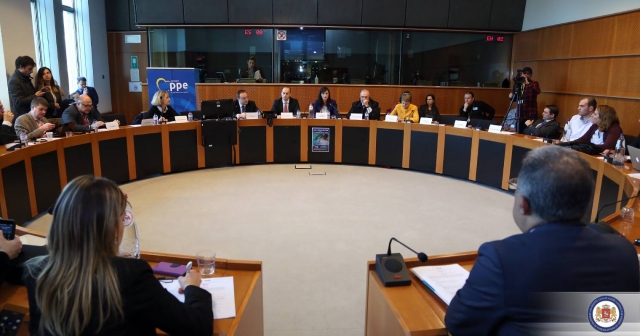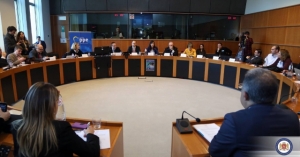Janelidze: VLAP Not about More Migration but Strengthened Partnerships
BRUSSELS - Georgia’s Foreign Minister, Mikheil Janelidze, stated at the European Parliament that a visa free travel regime between Georgia and the European Union (EU) did not mean additional migration, but meant better people-to-people contacts, and strengthened cultural and business ties and partnerships.
Janelidze delivered a speech at the Conference ‘Visa Liberalization as an EU Foreign Policy Tool’ in Brussels on Tuesday.
Representatives of the European Parliament, European Commission and the European External Action Service attended the conference, which was held on the initiative of European Parliament Rapporteur on Visa Liberalization for Georgia, Mariya Gabriel.
The Minister’s speech referred to the statement of the European Parliament, which said a day previously that Georgia’s visa-liberalization issue would not be considered until January 2017, when the mechanism for suspension of the visa-free regime was to be discussed by the legislative body.
“We fully understand the difficulties the EU is facing today, from increased migration to the rise of populism and extremist ideologies. However, we should also look at the costs of unnecessary and hardly justified delays in making decisions to honor mutual commitments,” Janelidze stated.
Moreover, he added that delays in Georgia’s visa-liberalization issue more benefits those who want the EU to fail.
He explained that after many years of demanding reforms and acknowledging progress, legitimate expectations are very high in Georgia.
“It carries a tremendous symbolic, political and practical importance for us and serves as a strong message of the EU’s political support,” the minister stressed.
Janelidze’s speech also focused on the progress Georgia has achieved over the last three years in all areas covered by the Visa Liberalization Action Plan (VLAP), which has been assessed by the partners as steady and effective. VLAP, he says, has proved to be an important driving force for advancing reforms and enabling the establishment of a legislative, policy and institutional framework in compliance with the highest European and international standards.
The Minister also mentioned the economic opportunities that had been created by implementing the Deep and Comprehensive Free Trade Agreement (DCFTA) with the EU.
“However, this agreement will not work in full capacity if Georgia does not let the businessmen, small farmers or entrepreneurs attend trade fairs, meet European business partners and explore business opportunities on the European markets. A visa free travel regime in relations between Georgia and the EU is by no means for additional migration, but for better people-to-people contacts, and strengthened cultural and business ties and partnerships,” he said, adding that Georgia has faced delays associated with the EU’s and EU member states’ internal and external policy issues and said these steps did not reflect the spirit of good partnership.
“Let us not frustrate our people. Let us keep them motivated to pursue these demanding reforms and let us continue moving towards a free, safe and at peaceful Europe. Let’s not benefit those who want Europe to fail,” he told European Parliament members.
By Thea Morrison












